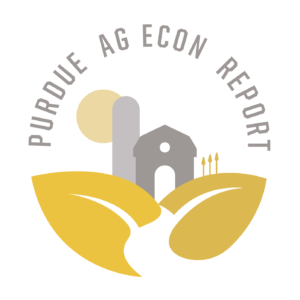Indiana Farm Fence Law
May 12, 1998
PAER-1998-08
Gerald A. Harrison, Extension Economist
Indiana law still makes it a duty for landowners outside corporate town or city limits to separate their land from that of their adjoining neighbor by a partition fence (IC 32-10-9-2). The law states that unless there is a recorded agreement to the contrary, a land-owner shall build the right one-half of the line fence determined by facing an adjoining neighbor’s property.
A “lawful” partition fences should be “hog tight,” and capable of holding sheep, cattle, mules, and horses. A landowner is compelled to help build and maintain a lawful line fence, even if its is only to keep his neighbor’s livetock from trespassing.
If a neighbor refuses to construct or maintain his share of a line fence, after 20 days, the landowner can seek the assistance of the township trustee. But first, the land-owner seeking assistance must build or repair his share. Once notified by the trustee with the cost of the project, if the reluctant neighbor does not per-form the work in 20 days, the trustee is required to have the work performed.
Indiana law requires a railroad to construct and maintain the entire fence along a right-of-way sufficient to prevent livestock from getting onto the tracks if the landowner has enclosed the other three sides of the area bounded by a rail right-of-way.
When a railroad fails to build or maintain a necessary fence, the adjacent landowner may build or repair the fence. If the landowner has given notice, and followed other procedures in the law, he may be reimbursed for his costs.
Existing fences may not be on the boundary line as Indiana law requires. A fence may have been erected under an erroneous assumption about the location of the line.
An adjoining neighbor may acquire a strip or segment of land from an adjoining landowner. With a law suit that makes a successful claim under the doctrine of adverse possession.
More information is in Indiana Farm Fence Laws, EC 657, available at county Purdue Cooperative Extension Service Offices or by calling the author at the toll free number,
1-888-398-4636. On the Internet, you may locate EC657 at <www.agcom. purdue.edu/AgCom/Pubs/EC/EC-657. html>. You may go directly to the Indiana fence law at <www.state. in.us/legislative/ic/code/index.html>.
